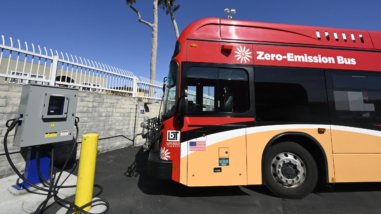UPDATE: On October 12, parties to the Montreal Protocol reached an agreement to phase out use of climate-changing hydrofluorocarbons. “This is a historic moment in the fight to mitigate global warming, as well as a unique opportunity to improve quality of life in developing nations,” said Larry Kramer, president of the William and Flora Hewlett Foundation, which supported the philanthropic fund. “It’s also a unique moment for philanthropy. The $53 million fund for energy efficiency in cooling is the largest fund of its kind ever created. All 19 contributors to the fund saw how pairing efficiency with HFC reductions is a winning investment—producing enormous economic benefits for developing nations while improving human safety and comfort and generating huge climate benefits. It’s a rare win-win-win situation.” Read the press release.
A combination of overwhelming scientific evidence and observable fact has persuaded all but the most obstinate holdouts that climate change is both real and dangerous. Like many others, I believe global warming may pose the greatest and most complex challenge humanity has ever faced. Rising sea levels, unrelenting extreme weather events, droughts and floods and food and water scarcity are but a few of the catastrophic impacts we must expect if average temperatures continue to rise—impacts that will hit hardest the people and nations with the fewest resources to react and respond.
It’s a global problem that demands a global solution. We must act boldly and swiftly, and we must act together. Philanthropy has a role, but philanthropic funders, no less than the governments of the world, must work together if we are to achieve the necessary impact quickly enough. One of the best opportunities for collaboration and immediate impact will come about next month, when 190 nations gather in Kigali, Rwanda, to plan the phase down of an extremely potent greenhouse gas, the chemicals named hydrofluorocarbons or HFCs.
HFCs were created in the early 1990s for use in refrigeration and cooling appliances. They were created for good reason, too: to replace the chloroflourocarbons (CFCs), then being used for cooling, that contributed to producing a hole in the atmosphere’s ozone layer. We succeeded in getting rid of CFCs, but at a cost. HFCs are almost 10,000 times more potent than carbon dioxide in causing global warming.
Fortunately, since HFCs were first introduced, scientists have developed climate-safe alternatives. And now, the nations of the world, developing and developed alike, are discussing how to eliminate these dangerous chemicals through an amendment to the Montreal Protocol (the international treaty governing the use of chemicals that deplete the ozone layer).
It’s the biggest climate moment since the signing of the Paris accord last year: a monumental opportunity to avoid up to .5°C of global warming by the end of the century. To put that in context, if every nation fulfills its Paris commitments, they will at most reduce warming by 1.5°C. Opportunities to accomplish this much in a single step are rare.
A group of developing nations that includes many of the most vulnerable are pushing an ambitious plan that calls for an early phase out of HFCs and a quick transition to climate-safe and energy efficient cooling technologies. To achieve this goal, they need funding support to help expand their energy efficiency programs. The link makes sense: using the transition to new cooling technologies as an opportunity simultaneously to increase energy efficiency offers developing nations significant long-term economic benefits (on top of the climate benefits). Cooling drives as much as 40-60 percent of peak summer energy load in these nations. Done properly, improved efficiency can relieve strain on weak electrical grids and reduce the need for hundreds of new power plants, thus saving money and emissions.
Not only that, but improved efficiency can help avoid another .5°C of global warming, helping these nations fulfill their Paris agreements and doubling the climate benefits of the HFC phase down.
Responding to this call, the Hewlett Foundation joined with 17 other charitable foundations and individuals to create a $53 million fund that will support expanding energy efficiency programs in developing nations. Our fund will provide these nations with essential, up-front resources to hire staff, consult expert advisers, and develop and implement policies to improve energy efficiency. Like the path that led to the successful Paris agreement, the fund allows countries to make their own decisions about which regulations to pursue and which sectors to regulate.
Big-picture, this collaboration could change the trajectory of energy efficiency progress globally—a win for everyone, because efficiency is the fastest, cheapest, most readily available climate solution out there. And by using energy efficiency to double the climate impact of an HFC phase out, we can at the same time take a large step forward in helping to protect every nation—but especially the most vulnerable ones—from the worst impacts of climate change.

 Ben Hattenbach
Ben Hattenbach


